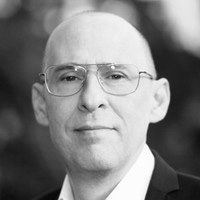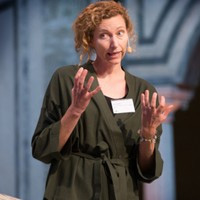The doctoral student in focus for FA and Deputy FA
Stefan Larsson was appointed as the school's new Director of Third Cycle Education (FA) at the turn of the year after previously holding the role of Deputy FA. Now a new Deputy Director of Third Cycle Education (Deputy FA) is also in place, Karin Bradley.
Stefan and Karin share their thoughts, visions and the exciting way forward for the school's doctoral education.

How does your new roles feel so far?
"It feels good, and exciting! I was deputy FA and worked in parallel with the former Director of Third-Cycle Education Anders Karlström since March 2023, so three quarters, before I became FA myself. It was very valuable. I think it is very educating to be allowed to familiarise yourself with the school's research in all its great breadth. We have very varied subjects at ABE with social sciences, humanities and architecture in addition to technology and natural sciences. For example, I have learnt much more about different forms of research in the built environment and architecture", says Stefan.

Karin adds: "For me it's more new, and fun. I was appointed in March, so I have just started to familiarise myself with the work. It feels very meaningful to be involved in working for good quality in the doctoral education. I have previously mostly seen it from the supervisor side, which provides a different angle. It's great to get a feel for the entire ABE school and to work with more general issues."
"I agree with that. And we are lucky enough to take over a functioning, well-run system, and work from there. This provides great potential to focus on the issues we want to pursue. We also have the doctoral studies officers as support, which is extremely valuable," Stefan continues.
What is step 1 for you?
"We are familiarising ourselves with the structure and content of both the existing and new programmes, and also looking at how we can best integrate the new subjects and programmes. It is important that we make sure that the processing of doctoral students works regardless of whether they belong to an 'old' or new programme.", says Karin.
They also look forward to start implementing KTH's new quality system, driven by the dean, which will be finalised this summer.
"It's super exciting because it will have a direct impact on our work. The new system means that we will work more closely with programme directors and supervisors, which feels very positive. We will visit all the programmes and look forward to having a dialogue and collect feedback as soon as we have more information", adds Stefan.
International presence and doctoral student focus
Karin highlights the importance of the international aspect of the doctoral education.
"All public defences open up for international scientific discussion. It is exciting for both the school and the doctoral students to establish contacts with international researchers. We try to include international opponents as much as possible. This not only enriches the scientific discussion but also opens up for future collaborations. And with the help of technology like Zoom, we can expand our international presence even more. This is extremely valuable."
Stefan also emphasises the ambition to keep the doctoral student in focus.
"One of our goals is to create a stronger community among the doctoral students at the school and increase the 'campus spirit' through joint activities and themes. Despite the wide range of subjects and projects, there are many research issues that are common to all doctoral students, such as JML questions, research ethics or stress management," he says.
One area that both are interested in improving is the work-life balance for doctoral students. Pulse measurements show that many, both researchers and doctoral students, see their research as both work and hobby, which can become unsustainable in the long run.
"We want to try to work towards awareness of strategies to help doctoral students maintain a healthy balance", Stefan emphasises.
The ABE school is holding its own internationally, often with hundreds of applicants per doctoral position and increasing interest from international applicants.
"This is a sign of the good reputation and quality of both KTH and the ABE school," says Karin. "We see a broad mix of applicants, including from countries such as France, Spain and England, which we may not have seen as much before. There is a great need to attract and retain international expertise in Sweden."
Both Stefan and Karin are involved in research and teaching, Stefan in soil and rock mechanics and Karin with a focus on sustainable consumption and urban development. Their own work illustrates the ABE school's breadth and commitment to collaboration, research and education at all levels.
What else do you do?
"The great thing about working at ABE is that as a researcher you can work in a broad range of topics. I go for everything I don't know and devote myself to, for example, both environmental geotechnics and classical mechanics, i.e. completely different things. Then I try to teach at all levels of first and second cycle education, years 1-5. It's great fun!" says Stefan.
"Research is the biggest part for me, both leading existing projects and of course seeking new ones. I work a lot with collaboration and am, for example, part of Mistra Sustainable Consumption, where we research sustainable consumption and the transformation of society. I also teach a bit, mainly in the master's programme Sustainable Urban Planning and Design.", says Karin.
